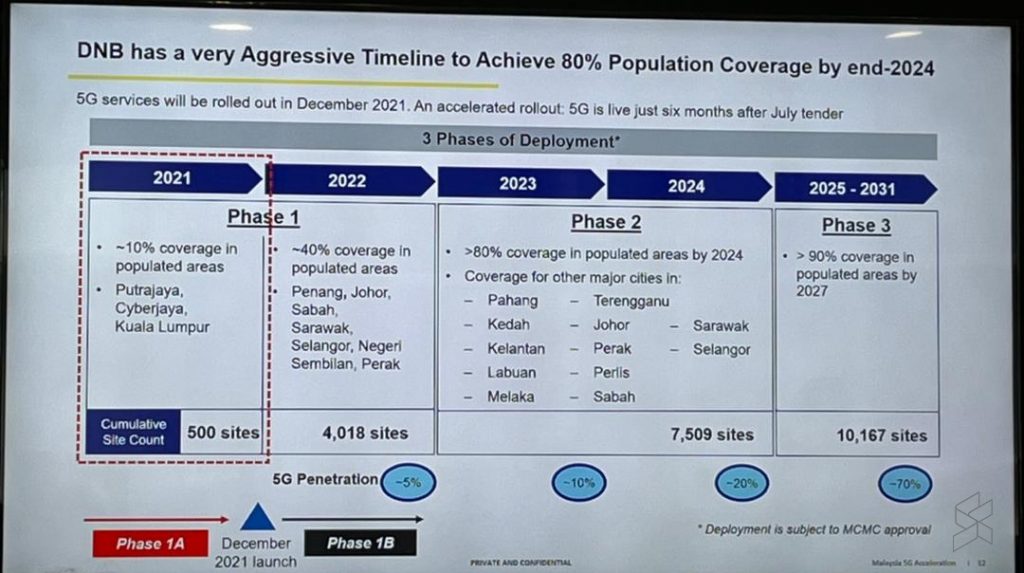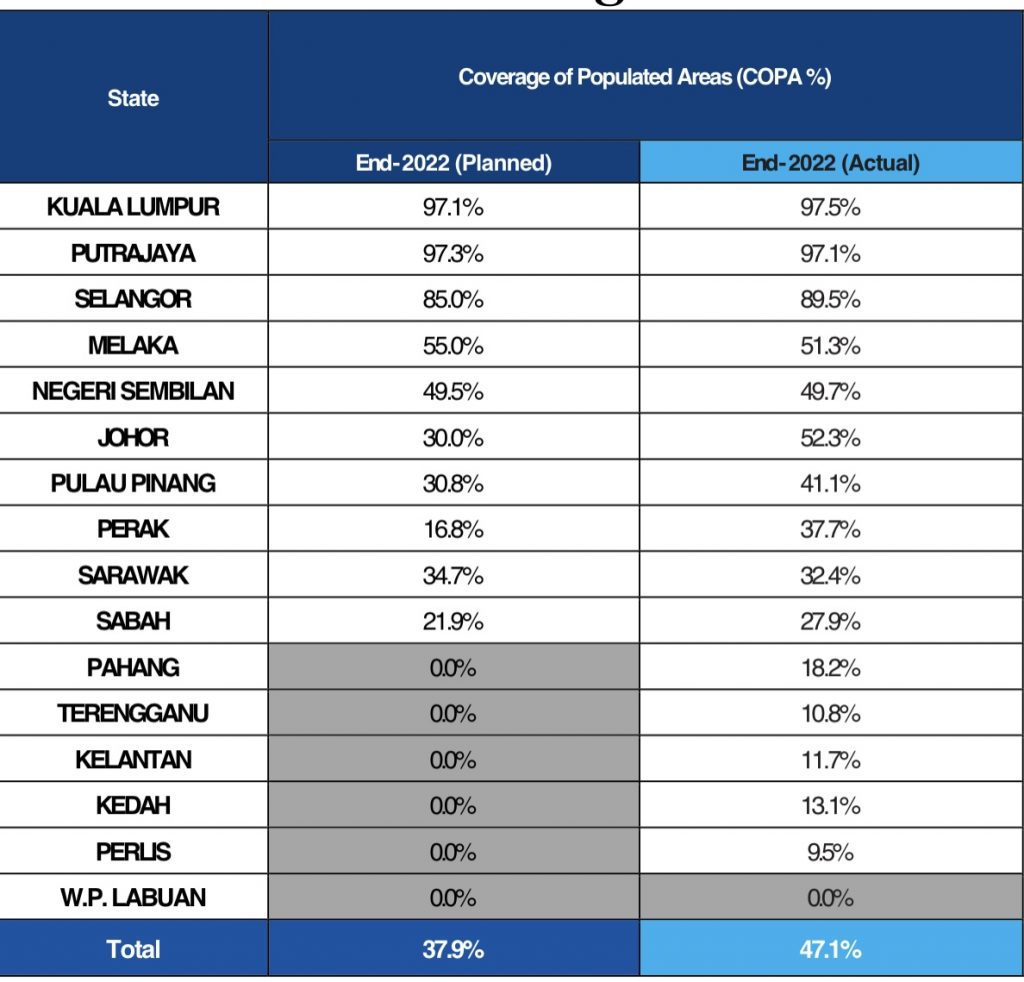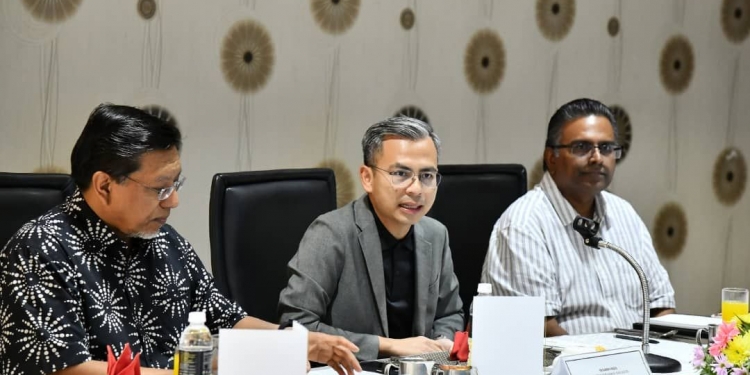During the tabling of the Budget 2023, Prime Minister Anwar Ibrahim said the government will manage the state-owned 5G single wholesale network (SWN), Digital Nasional Berhad, more transparently and achieve 80% 5G population coverage by the end of 2023. The Communications and Multimedia Minister Fahmi Fadzi has had a discussion with all telcos today and reaffirmed that the country will indeed aim to achieve the expedited 5G coverage target one year ahead of DNB’s original target of hitting 80% 5G population coverage by end of 2024.
Susulan pengumuman Belanjawan 2023 untuk mencapai 80% liputan 5G menjelang penghujung tahun 2023, saya terus mengadakan perbincangan bersama semua penyedia kemudahan telekomunikasi. pic.twitter.com/NqmrElOhui
— Fahmi Fadzil 🇲🇾 (@fahmi_fadzil) February 25, 2023
During the Prime Minister’s speech, it was mentioned that the 5G rollout will ensure the full participation of all telcos in the country. He said the most important focus is to achieve wide and comprehensive national 5G coverage with reasonable prices for the people.

To expedite the 5G rollout one year ahead of schedule, it appears that the government could be open to a dual wholesale network (DWN) or allow telcos to refarm their existing spectrum to roll out 5G. Getting telcos more involved could lead to the possibility of allowing telcos to have a larger stake in DNB. This could turn out to be close to the original plan of having a 5G consortium formed by private telcos as planned by the previous Pakatan Harapan government in 2020. According to DNB’s current 5G deployment plan, it aims to achieve 80% 5G population coverage by the end of 2024 with a total of 7,509 sites.

Earlier this year, DNB claimed to have exceeded its end-2022 40% 5G population coverage target with a claimed 47.1% 5G population coverage with a total of 3,900 sites. After a rebuke by the Minister, DNB confirmed its accessible 5G sites only cover 38% of populated areas in Malaysia with the remaining sites still pending to be onboarded by telcos.
If Malaysia aims to accelerate 5G deployment with 80% 5G population coverage by the end of this year, it will need the cooperation of all parties including DNB and telcos to deploy the 5G infrastructure. If the big four telcos jointly add 1,000 5G sites per month, Malaysia could possibly deploy over 10,000 5G sites by the end of this year including DNB’s current 5G infrastructure. Installing 5G equipment on the telco’s existing fiberised 4G sites would be faster than acquiring new sites which will have to undergo various hurdles including local government approvals.
To avoid duplication of networks and fair access to all, the 5G sites can be shared among all players using Multi-Operator Core Networks (MOCN) and with non-discriminatory and transparent access terms. In order to ensure 5G remains affordable to all, the government must regulate the 5G wholesale pricing through the Mandatory Standard of Access Pricing (MSAP) which will lead to fair retail pricing for consumers.
[ IMAGE SOURCE ]
Related reading
- 5G Malaysia: Govt to ensure DNB is managed more transparently to achieve full participation by telcos
- 5G Malaysia: Jo Ghani says govt has no business running a 5G business
- Telco source refutes DNB’s claim that telcos choose when and where 5G will be available
- DNB confirms 5G accessible in 38% of populated areas in Malaysia after rebuke over coverage claims







